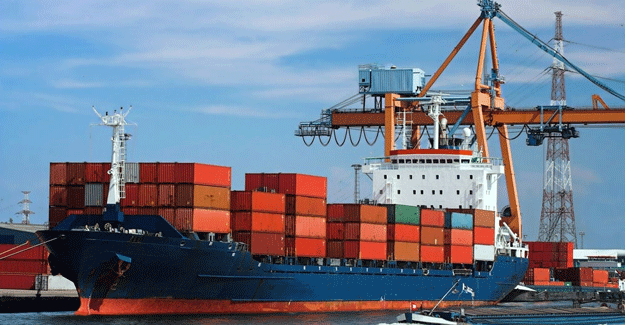
Record Global Inflation Hits Bangladeshi RMG Exports
Bangladesh's readymade garments industry is reporting a severe cut in RMG orders – less than 30% of the industry capacity, as record inflation rates across Europe and the US make consumers less willing to loosen their purse strings for new outfits and fashion accessories. Moreover, US and European buyers are burdened with high inventories, forcing them to slow down. In fiscal 2021-22, the Bangladesh RMG export sector had recorded exports worth US$ 42.61 billion, surpassing the previous high by almost $8 billion. Short-lived uptick? However, the geopolitical situation has resulted in severe inflation in Europe and the US. Starting from July to next February, RMG factories are reporting booking orders for less than 30% of their production capacity. This is in stark contrast to most factories running at overcapacity just a few months ago, with many increasing their capacities or running extra shifts. Bangladesh Knitwear Manufacturers and Exporters Association (BKMEA) Vice President Fazlee Shamim Ehsan expressed worries over the global economy saying the record inflation was hurting apparel orders for upcoming months. "My factory is getting 16% lower orders for the coming months," he said, adding that the fear of recession had affected the global apparel demand. Md Khosru Chowdhury, director of Bangladesh Garment Manufacturers and Exporters Association (BGMEA) and managing director (MD) of Nipa Group, said his company produces 30 lakh pieces of outerwear every month. But from next November to February, only 50% of his capacity has been booked. "I am getting enquiries for further orders, but I cannot meet those as the quoted price is less than my costs. It is 10-12% lower than what I had received six months ago. I won't go into half-capacity, but I will have to make some loss and am negotiating with buyers so we can split the loss," he said. "Right now, my profit margin is 2-5%. The freight-on-board (FOB) price is $5-$14 per piece for outerwears, and the manufacturing cost is $2-5. Now, I have to bear 5-7% loss but hope business will rebound once again after February, new shipment period for spring and summer, given the pandemic experience." On the increase in costs, he said, "We are seeing a fall in cotton prices. But the cost of petrochemicals has increased due to the war. For this, the total price of raw materials has increased by up to 15%. On the other hand, the brands are negotiating for lower prices." Confirming the fall in orders, BKMEA Executive President Mohammad Hatem said utilisation declarations (UD) had decreased by 20% for the coming spring and summer seasons. "Enquiries have also fallen up to 30% compared to four months ago," he said, saying a similar situation could be seen a month later. He said many factories would be unable to pay wages from December onwards as they would face a liquidity crisis. Fazlul Hoque, MD, Plummy Fashion Ltd and former president of BKMEA, said the current situation was a result of the over-ordering experienced last year being corrected. "But we also are seeing a new dimension amid this correction. Due to the recession, the value of the euro and the dollar is now nearly the same, meaning, the demand for our product will fall in major European markets as people's purchasing power erodes. To adjust this, brands may force us to decrease our prices." In regards to remedial steps, he said there was currently no recourse. "The big question now is of our survival," he said. Some exporters have reported cancellation of confirmed orders by buyers like Target and Walmart. Both the retailers have ample unsold stocks and, according to a Bloomberg report, are now turning away from the previous just-in-time method of procurement. US retailers have high inventories Inventories for major American retailers sprung to US$ 44.8 billion, meaning many may be cooling off on future purchases for the time being. Amid this, there are also whispers of requests for deferred shipments by up to two months, meaning capital would be tied up, while bank liabilities will increase. One RMG owner said the shipment of three lakh pieces of high-value apparel had been deferred. "The brands are now using my factory as a warehouse," he said. Inflation yes, but apparel prices remain under pressure It is learnt that order placements for Japan and South Korean markets had so far maintained the same pace of growth. However, while almost all product prices had been pushed up by inflation, apparel prices remained unchanged. South Korea's inflation hit a nearly 14-year high in May due to high energy and food costs due to the ongoing war between Russia and Ukraine. According to the data of the state-run Statistics Korea, consumer prices jumped 5.4% last month from a year earlier, accelerating from a 4.8% year-on-year spike in April.
Textile Excellence
If you wish to Subscribe to Textile Excellence Print Edition, kindly fill in the below form and we shall get back to you with details.












